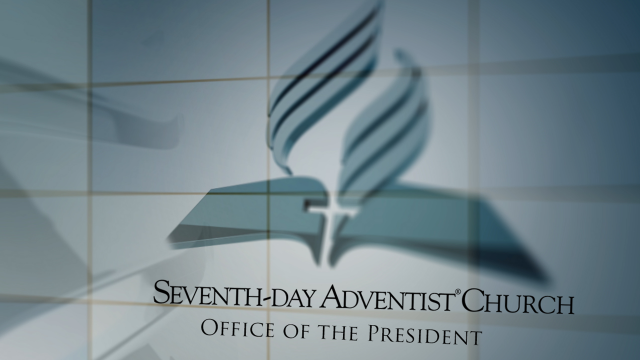Why Jesus is much more than that

In Matthew 27:27-31, we encounter an encoded story about Roman soldiers mocking and abusing a would-be king, a story of utter shame and humiliation, a mock coronation, a degradation ritual.1 Matthew means us to read the story that way, but not only that way. He has also a deeper story in view, one he has skillfully encoded, using the rhetorical strategy of irony.
What is irony? To decode Matthew’s story, we must awaken to his use of dramatic irony, which occurs when characters within the story act and speak in ways they don’t understand. They personify truths of which they know nothing.2 Matthew’s readers know more than the characters in his story. They can crack his code.
Matthew’s ironic, coded story echoes not only the mockery before the crucifixion of Jesus but unimaginable jubilation following His resurrection. In the midst of the grimy violence of this pre-crucifixion story, Matthew plants the bright, victorious flag of a grand, post-resurrection event. His story telegraphs convictions that energize believers in Jesus, giving their lives meaning in good times and bad.
Matthew means for his readers to decode this other story. He trains them to do so. And of the several clues he has embedded to enable them to crack his code, we shall briefly consider two:
Clue 1: Jesus Is the King of the Jews
Matthew shares this clue from the start: “The book of the genealogy of Jesus Christ, the Son of David” (Matt. 1:1, NKJV)3. Kingship is hereditary, and Jesus is the Son of the greatest of all the kings of Israel. Jesus is not just aking of the Jews, but the King of the Jews, the new David, born in David’s city, Bethlehem (Matt. 2:1). When astrologers from the East ask, “Where is He who has been born King of the Jews?” (verse 2, NKJV), Herod the Great—who thinks he is the real king of the Jews—is rattled by their question (verse 3). Just before our story, Pilate poses a related question to Jesus: “Are You the King of the Jews?” (Matt. 27:11, NKJV). We readers know the answer. We know Matthew’s code.
Clue 2: Jesus Is Far More Than the King of the Jews
For Matthew, Jesus is not only the King of the Jews, destined to rule a small, troublesome Roman province. His domain is to be far more expansive than that.
Matthew’s readers have already heard Jesus announce, “All things have been handed over to Me by My Father” (Matt. 11:27, NASB4). In the parable of the final judgment (Matt. 25:31-46), the royal Son of man presides from His “glorious throne” (verse 31, NASB) with “all the nations” (verse 32, NASB) gathered before Him. Jesus asks the sword-wielding Peter, “Do you think that I cannot appeal to my Father, and he will at once send me more than twelve legions of angels?” (Matt. 26:53, NRSV5). A cohort of 600 soldiers mocks Jesus, a mere one tenth of a legion. Jesus can request 12 legions, 72,000 angels.
In His trial before the Sanhedrin, the high priest demands of Jesus: “I adjure you by the living God, tell us if you are the Christ, the Son of God.” Jesus replies, “You have said so. But I tell you, from now on you will see the Son of Man seated at the right hand of Power and coming on the clouds of heaven” (verses 63, 64, ESV6). Drawing on the imagery of Daniel 7:13, 14, Jesus says: “You will see the Son of Man going to the Father and serving as Co-Regent of the cosmos.”
Jesus is far more than the King of the Jews. When Roman soldiers unwittingly play the role of imperial valets and invest their prisoner with a soldier’s worn, red cape, they believe they are merely mocking a despised, soon-to-be crucified Jew. They have no inkling that some will see in this frayed robe a symbol of the investiture, the exaltation, of this Jesus as the Co-regent with the Father in the courts of heaven. Jesus is far more than the King of the Jews. When they fix their cruel crown upon His brow, soldiers do not imagine its symbolism. But Matthew does, and we with him. Scarcely 50 days beyond His resurrection this bruised and battered Man will present Himself before the Father, and accompanied by the acclaim of myriad holy beings, He will be invested with the insignia of eternal rulership. And it’s because He has conquered through the very disgrace perpetrated this moment upon Him. His submission here is the road to His enthronement as King and Lord forever, King and Lord of my life, King of all kings and Lord of all lords: Jesus is far more than the King of the Jews.
1 For the term “degradation ritual,” see William G. Johnsson, Jesus of Nazareth: His Message and Passion (Silver Spring, Md.: Biblical Research Institute/Review and Herald, 2015), p. 155; Harold Garfinkel, “Conditions of Successful Degradation Ceremonies,” American Journal of Sociology, vol. 61, no. 5 (March 1956): pp. 420-424.
2 See James L. Resseguie, “A Glossary of New Testament Narrative Criticism With Illustrations,” Religions 10, no. 3 (2019): p. 217, https://doi.org/10.3390/rel10030217.
3 Texts credited to NKJV are from the New King James Version. Copyright ã 1979, 1980, 1982 by Thomas Nelson, Inc. Used by permission. All rights reserved.
4 Scripture quotations marked NASB are from the New American Standard Bible, copyright © 1960, 1962, 1963, 1968, 1971, 1972, 1973, 1975, 1977, 1995 by The Lockman Foundation. Used by permission.
5 Bible texts credited to NRSV are from the New Revised Standard Version of the Bible, copyright ã 1989 by the Division of Christian Education of the National Council of the Churches of Christ in the U.S.A. Used by permission.
6 Scripture quotations marked ESV are from The Holy Bible, English Standard Version, copyright © 2001 by Crossway Bibles, a division of Good News Publishers. Used by permission. All rights reserved.








